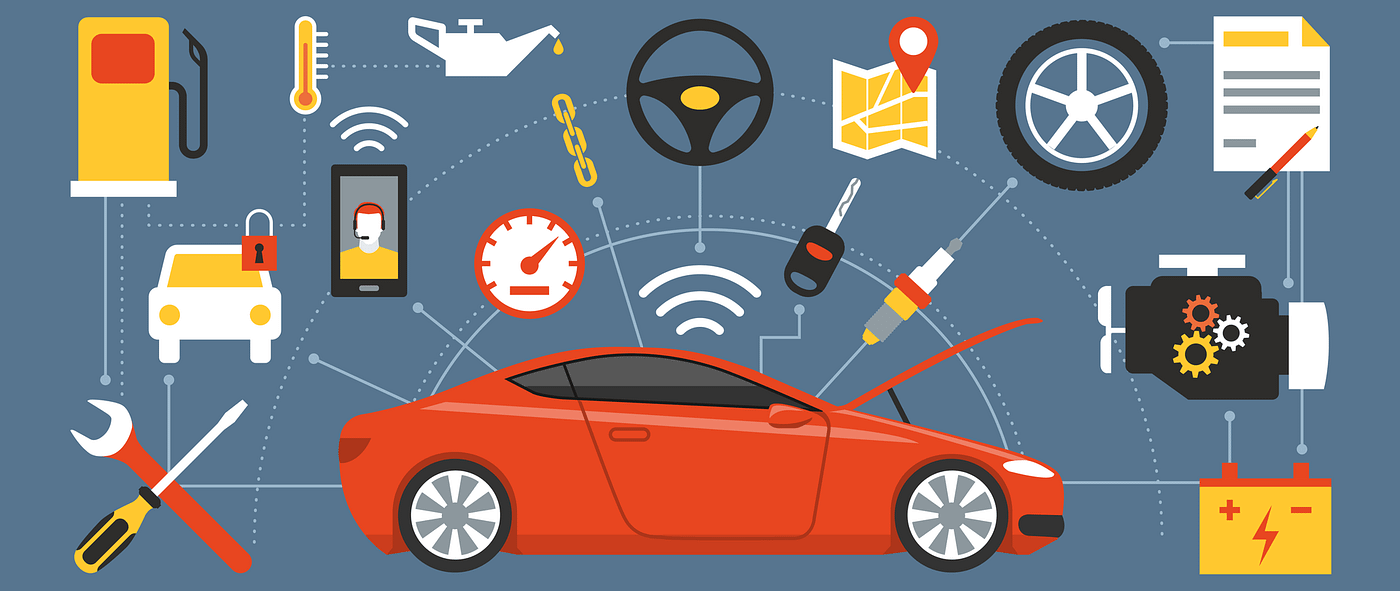All Categories
Featured

Modern cars are outfitted with sophisticated engine control devices (ECUs) that check and manage different components of the engine. Engine diagnostics is an effective device that allows technicians to determine problems early, assisting stop major repair services and guaranteeing the longevity of your car.
- What Are Engine Diagnostics? Engine diagnostics describe the procedure of making use of specialized tools to monitor and assess the performance of a car's engine. The analysis system within a vehicle collects information from sensors situated throughout the engine and various other critical elements, such as the transmission, fuel, and exhaust system. This information is then processed by the car's onboard computer system, which can discover malfunctions or irregularities.
Auto mechanics can connect an analysis tool, generally an OBD-II (Onboard Diagnostics) scanner, to your car's ECU to fetch error codes and real-time data. These codes show particular areas where the engine or various other parts may be experiencing problems, even before alerting lights or efficiency adjustments are obvious to the driver.
- Identifying Troubles Early. One of the most considerable advantages of engine diagnostics is the capability to identify troubles early, frequently before they rise right into major issues. Tiny troubles, such as a misfiring stimulate plug, a faulty sensing unit, or an inefficient fuel injector, can progressively get worse if left untreated. Nevertheless, with early discovery via engine diagnostics, mechanics can deal with these minor problems prior to they trigger substantial damage.
As an example, if a sensor spots that the engine is running rich or also lean (as well little or excessive gas), this could lead to boosted wear on engine parts or inadequate fuel efficiency. By diagnosing this early, the mechanic can adjust the air-fuel mix, avoiding costly repairs later on.
- Avoiding Engine Damage. Over time, problems with the engine's components, such as the timing belt, exhaust system, or cooling system, can cause severe damages if not addressed without delay. For example, a getting too hot engine due to a stopping working radiator or water pump can cause substantial inner damages, such as distorted cyndrical tube heads or a blown gasket. Identifying issues early through the engine diagnostics system can avoid these circumstances from proceeding to catastrophic engine failing.
The diagnostic system can also detect issues with the exhaust system, such as a malfunctioning catalytic converter, which could cause inadequate engine performance and eventual engine damages otherwise repaired.
- Lowering Repair Work Costs. By determining and dealing with small problems early, engine diagnostics can save you significant money on fixings. Repair services have a tendency to be less intricate and extra inexpensive when troubles are captured early. Replacing a damaged oxygen sensor or cleaning a blocked fuel injector is fairly low-cost contrasted to replacing an entire engine due to disregard.
Furthermore, engine diagnostics assist prevent unnecessary fixings by determining the exact root cause of the trouble. Without diagnostics, mechanics may need to do extensive testing and trial-and-error approaches to diagnose the issue, which can raise both time and cost.

- Improving Automobile Efficiency and Performance. One more advantage of regular engine diagnostics is that it assists boost your vehicle's efficiency and fuel performance. If the engine is running efficiently and all systems are operating efficiently, you will experience better acceleration, smoother driving, and raised fuel economy. Engine diagnostics can disclose issues such as a clogged air filter, a malfunctioning mass air movement sensor, or a damaged spark plug that might hinder your vehicle's performance.
As an example, a malfunctioning thermostat might trigger your engine to get too hot or otherwise reach its excellent operating temperature level. A diagnostic check will certainly aid recognize this concern early, preventing getting too hot and guaranteeing your car operates at its best.
- Why Regular Diagnostics Matter. While lots of motorists may think about engine diagnostics as something to do just when the "check engine" light shows up, regular diagnostics must belong to regular automobile upkeep. Several vehicle service center and dealerships offer diagnostic checks as component of a yearly service or tune-up. Regular analysis scans assist capture issues prior to they trigger visible signs or failures, ultimately stopping significant repair work down the road.
It is additionally worth keeping in mind that if you're preparing to sell or trade-in your automobile, having a recent engine analysis record can be beneficial. Possible customers or car dealerships might be extra likely to offer a greater trade-in value or acquisition rate if they know the car has actually been totally free and well-maintained of significant engine problems.
- Verdict. Engine diagnostics play a crucial role in keeping your automobile running effectively and staying clear of expensive repair work. By recognizing issues early, protecting against engine damages, lowering repair work prices, and improving performance, engine diagnostics guarantee your vehicle continues to be trusted for many years to find. Normal diagnostic checks as part of your lorry's routine maintenance will help you capture little issues prior to they become significant repairs, offering you assurance when driving and safeguarding your investment.
Latest Posts
Trusted Expenses Door Solutions for Residences and Services
Published May 24, 25
1 min read
Discover WyHy FCU – Top Benefits for Your Financial Success
Published May 24, 25
1 min read
Explore Strathmere’s Coastal Treasure: Relax, Savor, and Stay at Deauville Inn
Published May 23, 25
2 min read
More
Latest Posts
Trusted Expenses Door Solutions for Residences and Services
Published May 24, 25
1 min read
Discover WyHy FCU – Top Benefits for Your Financial Success
Published May 24, 25
1 min read
Explore Strathmere’s Coastal Treasure: Relax, Savor, and Stay at Deauville Inn
Published May 23, 25
2 min read